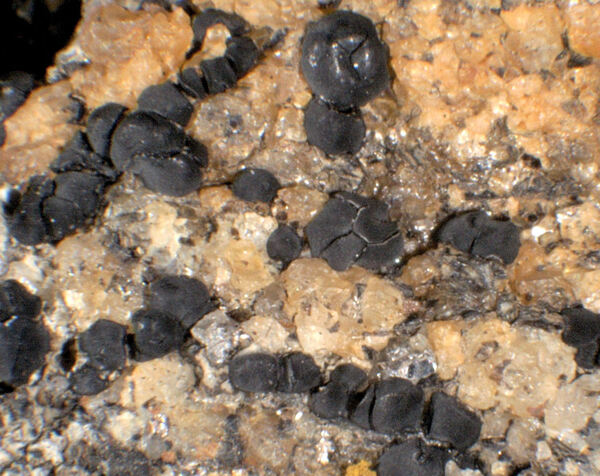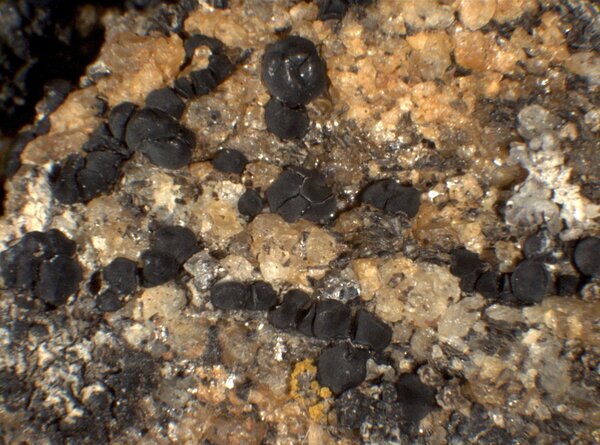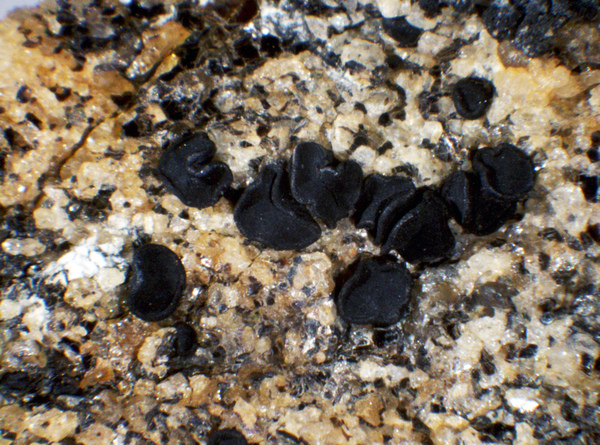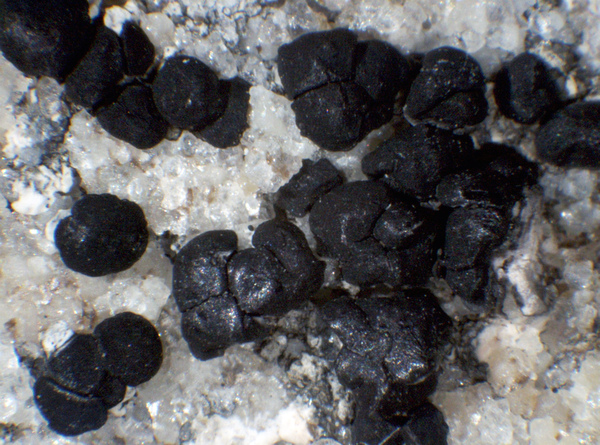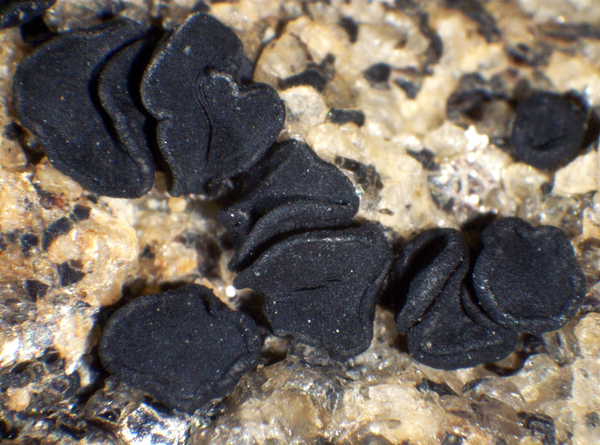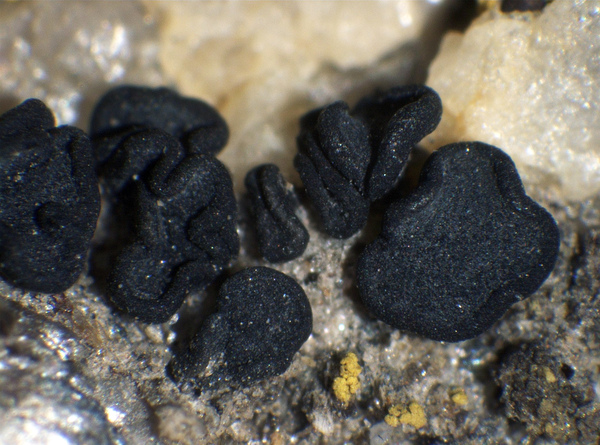Lecidea andersonii Filson
Muelleria, 3, 1: 16, 1974
Synonyms: Lecidea pseudopromiscens Hertel & Rambold
Distribution:
Description: Thallus crustose, thinly episubstratic but usually poorly developed, rimose to areolate, whitish to pale grey-brown, forming up to 2 cm wide patches, the areoles angular and usually adpressed along rock crevices. Medulla white, I+ blue. Apothecia lecideine, black, sessile, constricted at base, round to irregular in outline, (0.6-)0.8-1.3(-2) mm across, with a flat to slightly convex, epruinose or rarely faintly white-pruinose disc, and a distinct, sometimes flexuose, raised proper margin. Proper exciple 80-150 µm thick, the outer margin dark green to brownish green, N+ red, the inner part colourless; epithecium dark green, 10-15 µm high, N+ red; hymenium colourless, (40-)50-80 µm high; paraphyses simple, coherent, the apical cells only slightly swollen, 2-2.5 µm wide; hypothecium pale to middle brown, 70-100 µm high. Asci 8-spored, narrowly clavate, thick-walled, with a K/I+ pale blue tholus and a strongly amyloid, thin apical cushion, surrounded by a I+ blue outer layer, Lecidea-type. Ascospores 1-celled, hyaline, narrowly ellipsoid, 8-12 x 3-4(-5) µm. Photobiont chlorococcoid. Spot tests: thallus K-, C-, KC-, P-. Chemistry: chemotype I: 4-O-demethylplanaic and planaic acids; chemotype II: stictic and norstictic acids (traces); chemotype III: without lichen substances.Note: a bipolar silicicolous species most frequent in rock fissures, widespread in continental Antarctica and known from Iceland and Greenland, with only a few records from the Alps (Switzerland), where it was probably overlooked. To be looked for in the Italian Alps
Growth form: Crustose
Substrata: rocks
Photobiont: green algae other than Trentepohlia
Reproductive strategy: mainly sexual
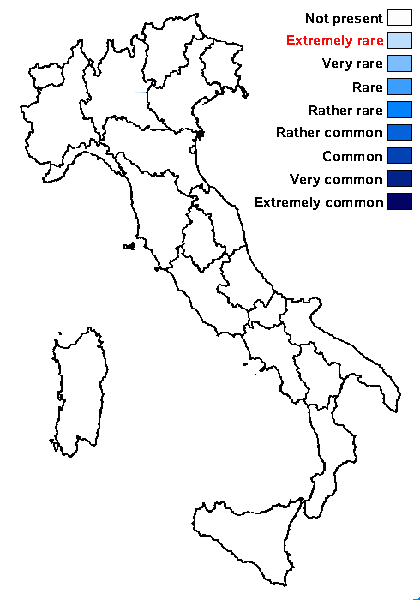
Predictive model
Growth form: Crustose
Substrata: rocks
Photobiont: green algae other than Trentepohlia
Reproductive strategy: mainly sexual

Predictive model
 INDEX FUNGORUM
INDEX FUNGORUM
 GBIF
GBIF
